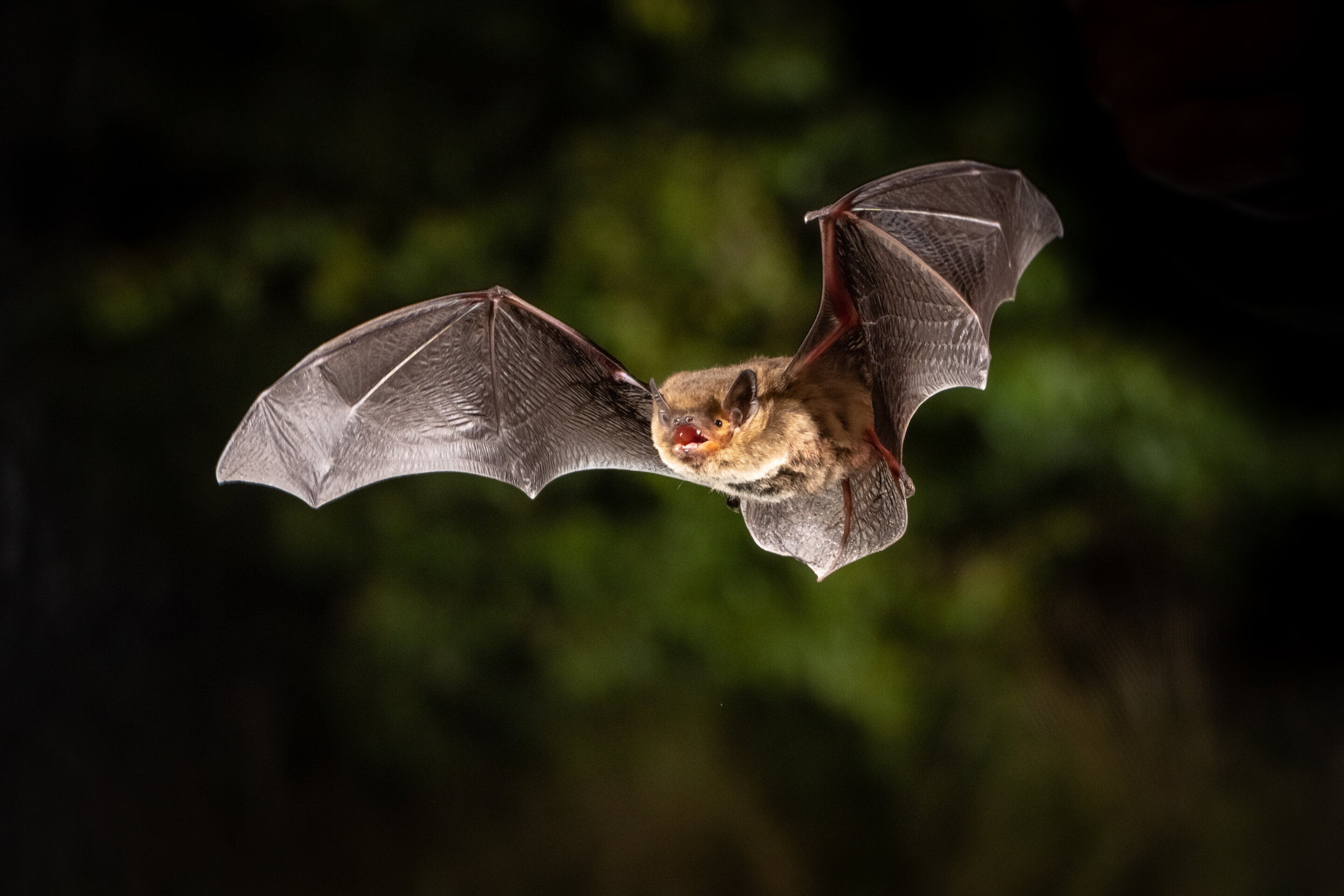Pipistrelle bats have a magnetic compass and calibrate it at sunset, according to a new study. An international team of researchers led by the University of Oldenburg has used behavioral experiments to show that two different components of the Earth’s magnetic field influence the orientation of these animals. Like birds, they seem to be sensitive to magnetic inclination.
The soprano pipistrelle (Pipistrellus pygmaeus) weighs only a few grams, but it is estimated that members of this small bat species cover thousands of kilometers every year on their nocturnal migrations from north-eastern to south-western Europe. Precisely how they find their way across such long distances in the dark remains unclear.
However, an international team led by biologist Dr. Oliver Lindecke from the University of Oldenburg has found evidence suggesting that a magnetic sense may play a role in the bats’ navigation. In behavioral experiments, the team discovered that two different components of the Earth’s magnetic field influence the animals’ orientation. The study has now been published in the journal Biology Letters.


